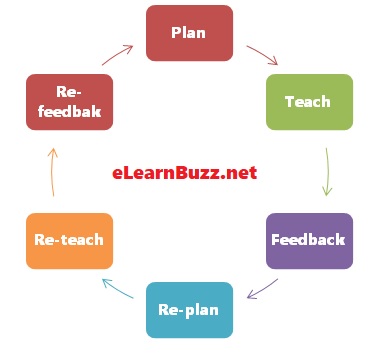Dear readers, following are the CTET previous years questions with answers on Growth and Development. These CTET questions on Growth and Development are important for preparation of CTET, KVS, HTET, PSTET, UPTET, MPTET and RAJTET exams.
1- In which of the following stages do children become active members of their peer group?
a) Adolescence
b) Adulthood
c) Early childhood
d) Childhood
2- Cognitive development means?
a) Development of intelligence
b) Development of child
c) Development of physical skill
d) Development of individual
3- Which of the following is not good for quality learning?
a) Making notes
b) Extra reading
c) Using guide books
d) Self study
4- Human development is divided into domains, such as?
a) Physical, spiritual, cognitive and social
b) Physical, emotional, cognitive and social
c) Emotional, cognitive, spritiual and social-psychological
d) Psychological,cognitive,emotional and physical
Read – भारत में नदियों के किनारे बसे शहर/ Nadiyon ke Kinare base Sahar
5- Development starts from?
a) Post-childhood stage
b) Pre-natal stage
c) The stage of infancy
d) Pre-childhood stage
6- Development occurs in human being?
a) up to the end of adolescence period
b) up to the end of childhood
c) up to the starting of adulthood
d) throughout the life
7- Which of the following principle of development is incorrect one?
a) there are individual differences in development
b) development is result of coincidences
c) it is a continuous process
d) it is predictable
Learn – Divisibility Rules of 2, 3, 4, 5 and 6
8- Human development is?
a) qualitative
b) quantitative
c) immeasurable to a certain extent
d) both (a) and (b)
9- Physical growth and development is called?
a) readiness
b) mobility
c) maturation
d) heredity
10- Factors influences the emotional development are
a) physical health
b) mental abilities
c) fatique
d) All the above
11- Which of the following are groups falls under later childhood category?
a) 11 to 18 years
b) 18 to 24 years
c) 0 to 6 years
d) 6 to 11 years
Read – 10 Important Questions on Motivation for CTET and other TET Exams
12- In middle childhood, speech is more………….rather than………..
a) animistic, socialised
b) mature, immature
c) egocentric, socialised
d) socialised, egocentric
13- The period of infancy is form
a) 0 to 2 years
b) 0 to 4 years
c) 2 to 3 years
d) 3 to 5 years
14- Which of the following is not related to principles of growth and development?
a) Principle of continuity
b) Principle of Classification
c) Principle of integration
d) Principle of individuality
15- In this stage, the children develop great love of exploring and wandering?
a) infancy
b) later childhood
c) Adolescence
d) Maturity
16- Development proceeds from….. to ………
a) complex, hard
b) specific, general
c) simple, easy
d) general, specific
17- Which of the following is not a principle of human development?
a) Sequentially
b) Continuity
c) Reversible
d) General to specific
18- Which one of the following is the true statement corresponding to Cephalocaudal Principle of child’s development?
a) Development of from head to foot
b) Development is from foot to head
c) Development is from middle to periphery
d) None of above
19- The central focus of Child Psychology is…?
a) Good teacher
b) Child
c) teaching process
d) school
20- Early childhood is……….period for language development?
a) a not-so-significant
b) an unimportant
c) a sensitive
d) a natural
Read Micro Teaching – for CTET and Other TETs Preparation
Answers: 1(a), 2(a), 3(c), 4(d), 5(b), 6(d), 7(b), 8(d), 9(c), 10(d), 11(d), 12(d), 13(a), 14(b), 15(c), 16(d), 17(c), 18(a), 19(b), 20(c)
You may use ‘comment section’ below for your valuable comments/feedback.
Check Complete List – Competitive Exam Preparation
